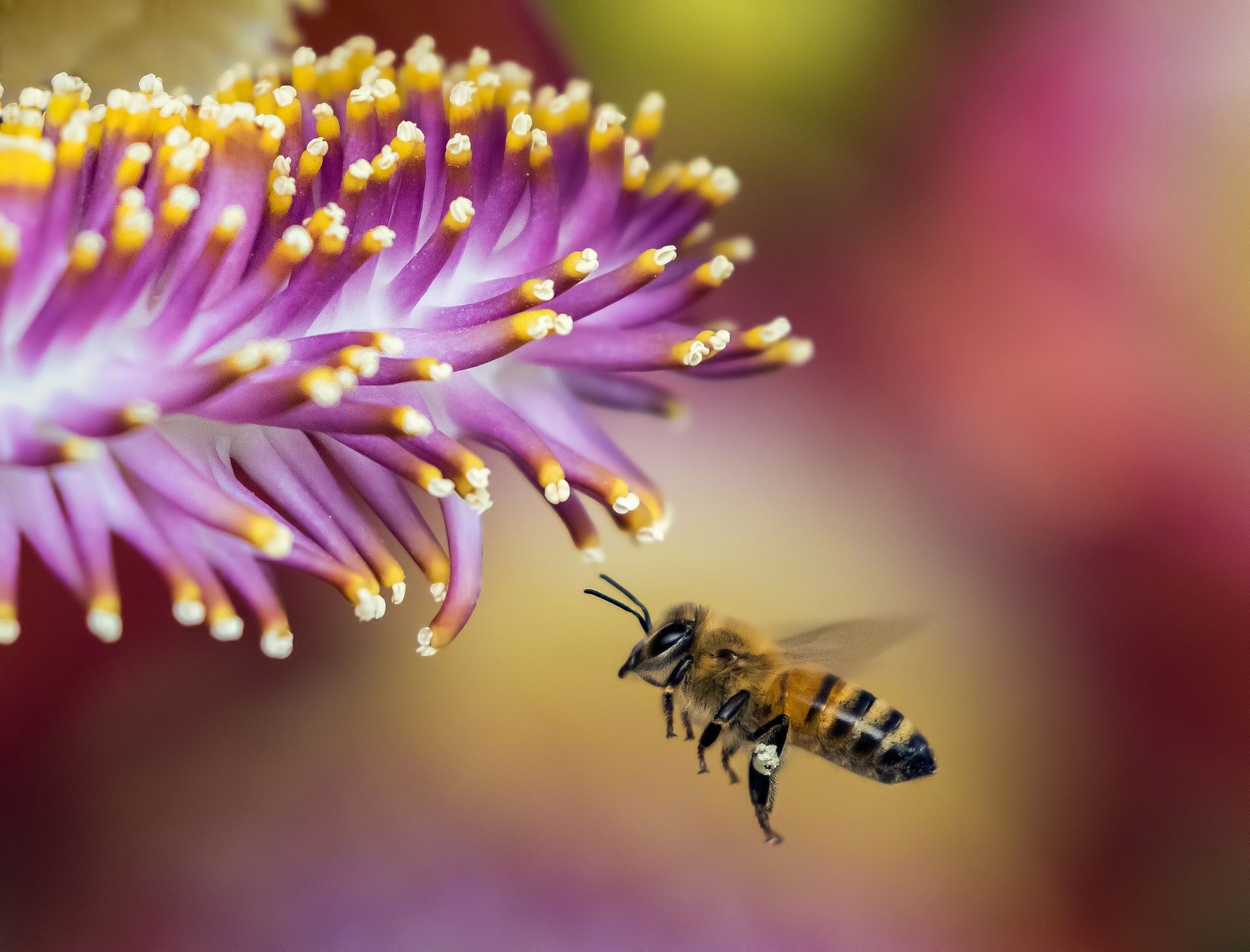
🐝 More bees cause fewer forest fires in the rainforest
By giving the local population knowledge and equipment to become beekeepers, it is possible to get rid of swidden farming and reduce the number of forest fires.
Share this story!
Swedish agriculture, where forests are felled and then burned to create new agricultural land, is a major threat to many rainforests. On the one hand, the part of the forest that is cut down disappears, and on the other hand, swidden farming can start forest fires that destroy large areas.
For many in the poorest areas, swidden farming is still a must because it is the only way they have to support themselves and their families. But the non-profit organization Cameroon Gender and Environment Watch, Camgew, has tested another solution that has worked very well.
Camgew has taught locals living in the rainforest of western Cameroon to become beekeepers . This means that they can earn enough money by selling honey and beeswax to avoid engaging in swidden farming.
The bees are of course completely dependent on the plants in the rainforest, which means that forest fires are something that the locals now want to avoid at all costs. So not only have they stopped using the swede farm. They also keep an eye on the forest and if a lightning strike or something else starts a fire, everyone works together to put it out.
The result is that forest fires are now uncommon at the same time as the local population is getting better financially. Satellite images also show that the rainforest has begun to grow again in areas with many beekeepers.
Camgew has also started a project to plant trees on old swede farms that are no longer fertile. Here, school children get to plant trees and at the same time learn about the importance of the forest. In another project, local farmers receive training in sustainable cultivation that provides more returns than swede cultivation.
By becoming a premium supporter, you help in the creation and sharing of fact-based optimistic news all over the world.


